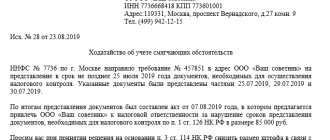1. Negligence, that is, failure or improper performance by an official of his duties due to dishonest or negligent attitude towards service or duties in office, if this resulted in major damage or a significant violation of the rights and legitimate interests of citizens or organizations or legally protected interests of society or the state, —
shall be punishable by a fine in the amount of up to one hundred twenty thousand rubles, or in the amount of the wages or other income of the convicted person for a period of up to one year, or by compulsory labor for a term of up to three hundred and sixty hours, or by corrective labor for a term of up to one year, or by arrest for a term of up to three months. .
1.1. The same act, entailing the infliction of especially large damage, -
shall be punishable by a fine in the amount of two hundred thousand to five hundred thousand rubles, or in the amount of the wages or other income of the convicted person for a period of one to three years, with or without deprivation of the right to hold certain positions or engage in certain activities for a term of up to three years, or with compulsory labor. for a term of up to four hundred eighty hours, or correctional labor for a term of up to two years, or arrest for a term of up to six months.
2. An act provided for in the first part of this article, which through negligence entailed the infliction of serious harm to health or the death of a person, -
shall be punishable by forced labor for a term of up to five years with deprivation of the right to hold certain positions or engage in certain activities for a term of up to three years or without it, or imprisonment for a term of up to five years with deprivation of the right to hold certain positions or engage in certain activities for a term of up to three years, or without one.
3. An act provided for in the first part of this article, resulting in the death of two or more persons through negligence, -
shall be punishable by forced labor for a term of up to five years with deprivation of the right to hold certain positions or engage in certain activities for a term of up to three years or without it, or by imprisonment for a term of up to seven years with deprivation of the right to hold certain positions or engage in certain activities for a term of up to three years, or without one.
Note. In this article, major damage is defined as damage the amount of which exceeds one million five hundred thousand rubles, and especially large damage - seven million five hundred thousand rubles.
- Article 292.1. Illegal issuance of a passport of a citizen of the Russian Federation, as well as the entry of knowingly false information into documents, resulting in the illegal acquisition of citizenship of the Russian Federation
- Article 294. Obstruction of justice and preliminary investigation
The Constitutional Court clarified when there will be a criminal offense for negligence
Background
Evgeniy Velichko*, being a state registrar in the territorial body of Rosreestr for the Kaliningrad region, formalized the land purchase and sale transaction. Later it turned out that the documents for sale were submitted not by the owner of the plot, but by its namesake. The damage to the real owner, according to the examination, amounted to about 630,000 rubles. A criminal case was opened against Velichko under Part 1 of Art. 293 of the Criminal Code (“Negligence”). While the investigation was ongoing, the official died.
- The right to rehabilitation and a free lawyer: what the draft Code of Administrative Offenses offers
June 16, 19:35
The relatives were asked to close the case on non-exonerating grounds - due to the expiration of the statute of limitations and due to the death of the accused. But his brother Roman Velichko opposed it and went to court. The first instance, having established the deceased’s involvement in the crime, refused rehabilitation. This decision was left unchanged by the Kaliningrad Regional Court. At the same time, the courts found a significant violation of the rights and interests of the victim in the fact that he lost ownership of the plot. The cassation instance and the Supreme Court refused to consider Velichko's complaint.
As a result, he appealed to the Constitutional Court, insisting that the controversial norm allows an official to be held criminally liable for failure to perform or improper performance of his duties due to dishonest or negligent attitude towards service in cases where the damage amounted to less than 1.5 million rubles.
According to current legislation, an official can be charged under the article “Negligence” if the amount of damage was at least 1.5 million rubles. For this, the official may face a fine of up to 120,000 rubles. or in the amount of salary for a five-year period. They may also be sentenced to compulsory labor for up to 360 hours, correctional labor for one year, or arrest for up to three months.
What did the court decide?
The Constitutional Court decided that the disputed norm does not contradict the Basic Law “if properly understood and applied”: it clarifies the conditions for the application of criminal law, increases its predictability in cases where the consequences of negligence can be calculated materially, with the help of expertise or professional assessment.
At the same time, the court may not take into account other consequences of negligence, in which the prosecution would have to prove the harm caused to the victims, and the defense would have to challenge the accusation, belittling the importance of these values, the Constitutional Court indicated.
- The Constitutional Court explains how to compensate for damages for illegal criminal prosecution
November 12, 16:59 - The Supreme Court decided whether the employee should pay for damages from theft
July 24, 8:53
“In any case, the sign of large damage, which must be calculated in a monetary amount, forms a sufficient condition for bringing to criminal liability for negligence, if all other signs of this crime are present,” the resolution says.
Causing harm only to the right of ownership without major damage to property in itself is not enough for criminal prosecution. A different understanding of the contested legal provision would lead to uncertainty in criminal law regulation contrary to the Constitution, the Constitutional Court is convinced.
“At the same time, causing material damage not on a large scale does not exclude the discovery that the act significantly violated rights and interests other than economically significant ones, protected by law. Bringing criminal liability in this case is not due to the monetary assessment of the harm caused,” the Constitutional Court noted, emphasizing that non-economic values can be taken into account and recognized as significant: aesthetic, family, social and status significance of things and property rights, the use by the victim of lost property as the only possible housing and other similar circumstances.
Now the case of Roman Velichko is subject to review taking into account the position of the Constitutional Court.
Lawyers' opinions
Experts interviewed by Pravo.ru assessed the adopted resolution differently. So, according to the partner of KA Pen & Paper Pen & Paper Federal rating. Anatoly Loginov, although the Constitutional Court’s act should uniformize judicial practice in proving the socially dangerous consequences of officials’ negligence, it turned out “not very successfully.”
The position of the Constitutional Court raises new unresolved questions, Loginov argues: “From the point of view of legal technology, everything seems to be correct. To determine the degree of harm when economic interests are affected (for example, property rights), the Constitutional Court requires focusing on the material aspect, indicated by the amount of 1.5 million rubles. At the same time, the court argues that if the damage does not exceed 1.5 million, then there is no corpus delicti, since it is unacceptable in this case to call the deprivation of the victim’s property rights in itself a significant violation.”
He notes that if, for example, in Moscow an official could be put on trial for such a crime, then in the provinces, most likely not, since the cost of the same real estate or plots outside the Moscow Ring Road is significantly lower. “As practice shows, in our criminal justice system it would be correct to completely exclude evaluative language and at the same time remind the legislator that life outside the Moscow Ring Road is different, and the damage in such amounts is exaggerated,” the expert believes.
In turn, senior partner of AB Law Office ZKS Law Office ZKS Federal rating. Criminal Law group 16th place By revenue per lawyer (less than 30 lawyers) 41st place By revenue Company profile Andrey Grivtsov, on the contrary, calls the Constitutional Court ruling “one of the few related to criminal cases that resolved the issue on the merits.”
In fact, the Constitutional Court decided to eliminate the mistake made by the SOJ in interpreting the norm of Art. 293 of the Criminal Code, when an act that caused material damage of less than 1.5 million rubles was recognized as criminally punishable under this article. This, as the Constitutional Court noted, is not a question of a “bad” or unconstitutional norm, it is a question of distorted law enforcement and an incorrect understanding of the norm.
Andrey Grivtsov
He added that it is impossible to talk about the presence of a crime based on the occurrence of significant harm if we are talking about material damage in the amount of less than 1.5 million rubles, and about no other consequences. It is gratifying that the Constitutional Court decided to reconsider the case against the applicant, since currently the Constitutional Court makes such decisions very rarely, the lawyer concluded.
*Name has been changed by the editors.
- Yulia Egorova
Article 293 of the Criminal Code of the Russian Federation. Negligence (current version)
1. Negligence, that is, failure or improper performance by an official of his duties due to dishonest or negligent attitude towards service or duties in office, if this resulted in major damage or a significant violation of the rights and legitimate interests of citizens or organizations or legally protected interests of society or the state, —
shall be punishable by a fine in the amount of up to one hundred twenty thousand rubles, or in the amount of the wages or other income of the convicted person for a period of up to one year, or by compulsory labor for a term of up to three hundred and sixty hours, or by corrective labor for a term of up to one year, or by arrest for a term of up to three months. .
1.1. The same act, entailing the infliction of especially large damage, -
shall be punishable by a fine in the amount of two hundred thousand to five hundred thousand rubles, or in the amount of the wages or other income of the convicted person for a period of one to three years, with or without deprivation of the right to hold certain positions or engage in certain activities for a term of up to three years, or with compulsory labor. for a term of up to four hundred eighty hours, or correctional labor for a term of up to two years, or arrest for a term of up to six months.
2. An act provided for in the first part of this article, which through negligence entailed the infliction of serious harm to health or the death of a person, -
shall be punishable by forced labor for a term of up to five years with deprivation of the right to hold certain positions or engage in certain activities for a term of up to three years or without it, or imprisonment for a term of up to five years with deprivation of the right to hold certain positions or engage in certain activities for a term of up to three years, or without one.
3. An act provided for in the first part of this article, resulting in the death of two or more persons through negligence, -
shall be punishable by forced labor for a term of up to five years with deprivation of the right to hold certain positions or engage in certain activities for a term of up to three years or without it, or by imprisonment for a term of up to seven years with deprivation of the right to hold certain positions or engage in certain activities for a term of up to three years, or without one.
Note. In this article, major damage is defined as damage the amount of which exceeds one million five hundred thousand rubles, and especially large damage - seven million five hundred thousand rubles.
Commentary to Art. 4.2 Code of Administrative Offenses
1. Before bringing a person to administrative responsibility, the fundamental guarantee is the identification of circumstances that mitigate liability for a given specific administrative offense, taking into account the degree of public danger.
An important feature is the repentance of the person who committed the offense, which characterizes his negative assessment of the fact of the offense and the harm caused. In this case, the repentance of a person under the influence of any moral or physical pressure or coercion means the absence of circumstances mitigating responsibility.
In addition to the fundamental sign of repentance, the Code of Administrative Offenses of the Russian Federation also includes the prevention of harmful consequences of the offense by the perpetrator, voluntary compensation for the damage caused or the elimination of the harm caused as mitigating circumstances. The result of the analysis of the listed circumstances is the presence of the person’s good will in preventing harmful consequences or compensation, eliminating socially dangerous consequences, this means that the person acts independently, without external coercion.
In this situation, the option of declaring a person guilty due to the absence of an event and the composition of an administrative offense is applied, which excludes proceedings in a case of an administrative offense (see commentary to paragraphs 1, 2 of Article 24.5 of the Code of Administrative Offenses of the Russian Federation).
A state of strong emotional disturbance, that is, passion, or a combination of difficult personal or family circumstances is taken into account only in relation to persons recognized as sane. In the same case, if we are talking about insanity, dementia or another morbid condition, the provisions of the current legislation are applied in the form of circumstances excluding administrative liability (see commentary to Article 2.8 of the Code of Administrative Offenses of the Russian Federation). To confirm the presence of signs of affect (strong emotional disturbance) in an administrative offense, as a rule, an expert assessment is required. The expert's opinion may be taken into account during administrative proceedings. In case of disagreement with the expert assessment, the body (official) has the right to appoint an additional examination.
The list of mitigating circumstances also appears, for example, in Art. 112 of the Tax Code of the Russian Federation, where from paragraph 3 of paragraph 1 of Art. 4.2 of the Code of Administrative Offenses of the Russian Federation corresponds only to the commission of an offense due to a combination of difficult personal or family circumstances, and the rest do not coincide with the list of Art. 4.2 Code of Administrative Offenses of the Russian Federation. As a general rule, difficult personal or family circumstances mean material (property) problems, the consequence of which is the commission of an administrative offense.
Since a minor who has committed an administrative offense is generally unable to independently assess the social danger of the act or acted under the influence of other persons, etc., it is classified as a circumstance mitigating responsibility (see commentary to Article 2.3 of the Code of Administrative Offenses of the Russian Federation). It is possible to apply specific administrative measures of educational influence to minors, not related to administrative punishment, within the framework of the Federal Law of June 24, 1999 N 120-FZ (as amended on January 5, 2006) “On the fundamentals of the system for the prevention of neglect and juvenile delinquency.” Educational measures include: imposing the obligation to make a public or other form of apology; warning; reprimand or severe reprimand; imposing the obligation to compensate for the material damage caused if the minor has independent earnings and the amount of damage does not exceed half the minimum wage, or to eliminate the material damage caused by one’s own labor that does not exceed one-half of the minimum wage; imposition of a fine on a minor who has independent income; transfer of a minor to the supervision of parents or persons in their stead, or public educators, or a public organization with their consent, etc.
In relation to the consideration of an administrative offense committed by a pregnant woman or a woman with a young child, physiological characteristics are taken into account, which do not always allow to foresee to the required extent the social danger or the degree of harm caused by the commission of the relevant offense. An important point is the definition of the category “young child,” which is regulated, in particular, by Article 28 of the Civil Code of the Russian Federation; it includes minors under fourteen years of age (minors).
2. The list of circumstances mitigating liability is not exhaustive, since the judge, body, official considering a misdemeanor case may, at their own discretion, decide on the presence of mitigating circumstances not specified in the commented article or in the laws of the constituent entities of the Federation on administrative offenses .








